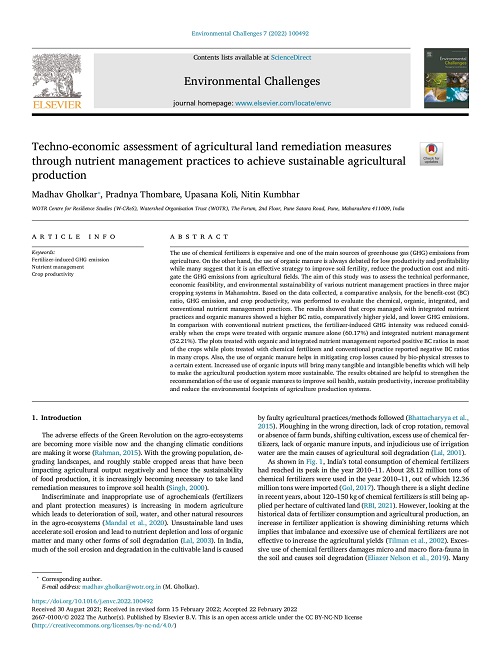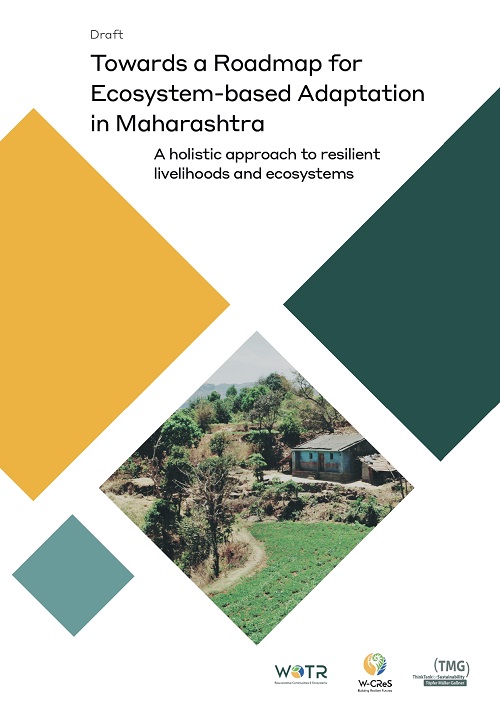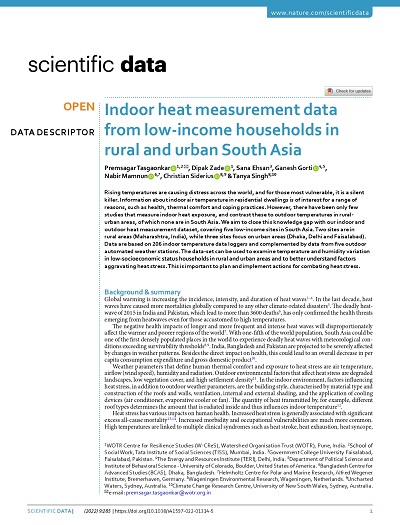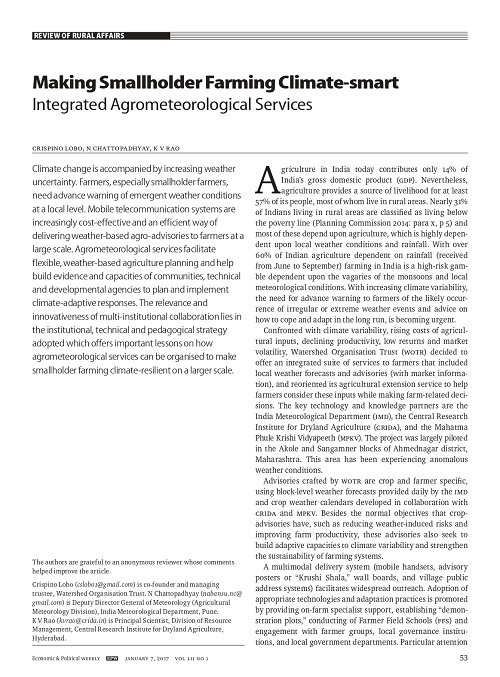WOTR Centre for Resilience Studies
WOTR Centre for Resilience Studies

Initiated in 2007 and set up as an autonomous unit in 2016, W-CReS (the WOTR Centre for Resilience Studies) undertakes multi-stakeholder, applied research on ground-level problems using a trans-disciplinary approach. The overall objective of W-CReS is to study how drivers of change impact communities, understand underlying causal relationships and behavioural motivations, identify effective strategies that can catalyse socially beneficial behavioural change, build capacities and contribute to policy and program design. W-CReS has formal MOUs and collaborations with leading national and international research and scientific institutions including ICAR, IMD, and CRIDA among others. Both WOTR and W-CReS work in close collaboration with civil society entities, companies, and the federal and state governments to achieve their objectives.

W-CReS’ core objectives
- Generate ground-based insights and learnings to bridge the gaps between science, policy and practice
- Promote collaborative, multi-stakeholder, trans-disciplinary applied research
- Develop knowledge-based tools for effective planning, program implementation and monitoring
- Disseminate research findings and knowledge through various media, communication channels and platforms
- Engage with diverse stakeholders across sectors – scientific, academic and knowledge institutions, government, domain experts and communities – to contribute to policy and program design
- Build capacities and skills for transformational change in related thematic areas
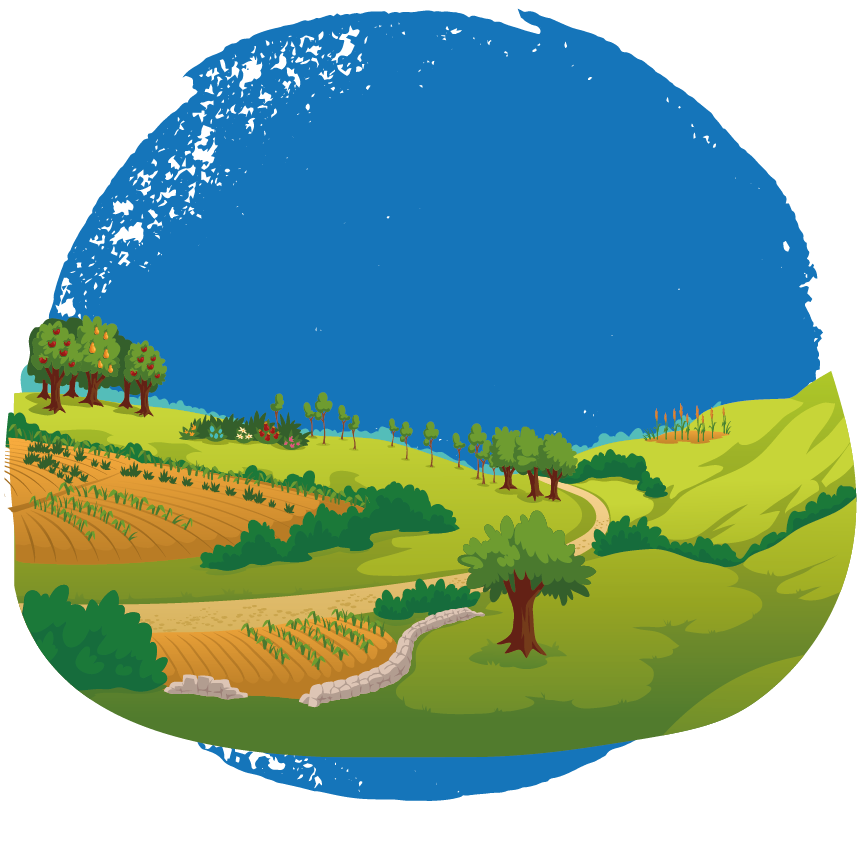
Ecosystem-based adaptation
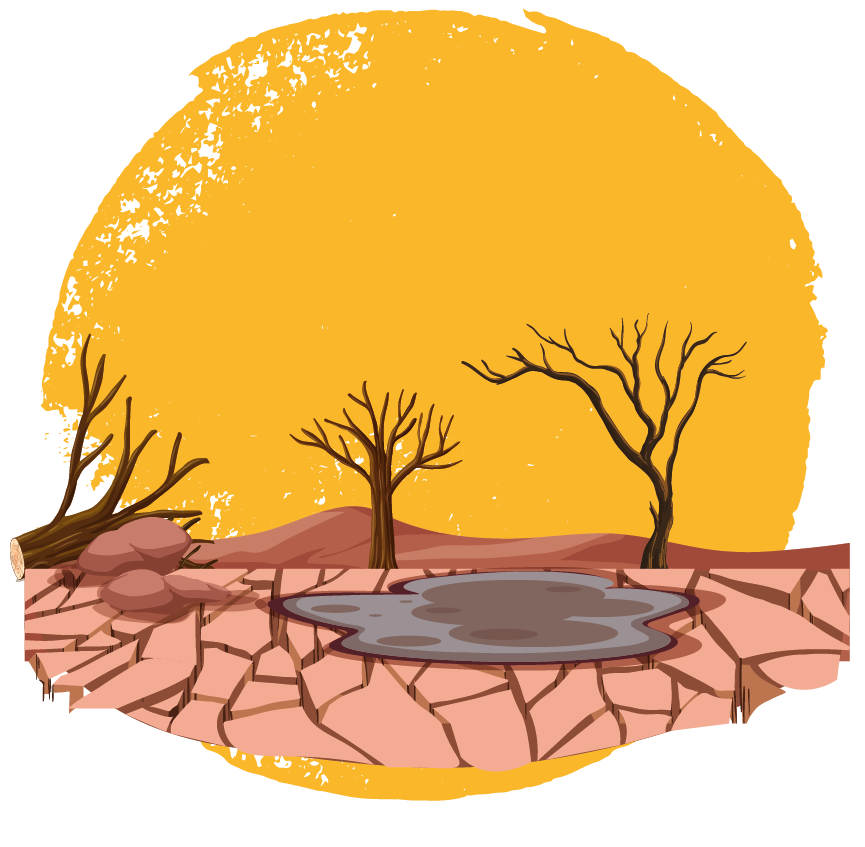
Economics of land degradation

Climate resilient agricultural practices

Stewardship of water and other natural resources
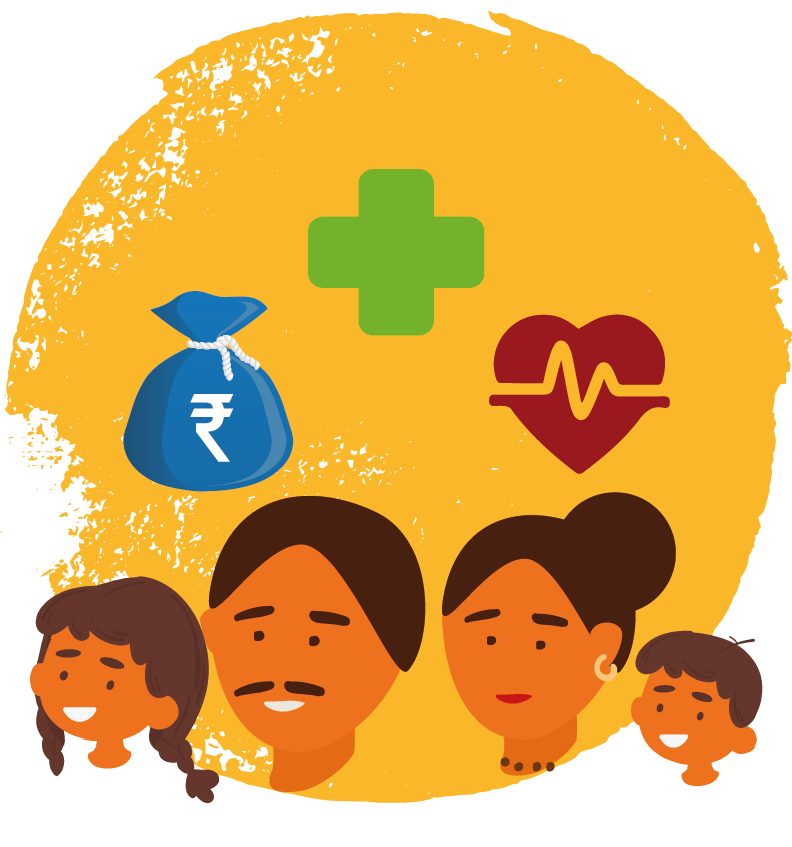
Socio-economic impacts and well-being

Women empowerment and inclusion

Ecosystem-based adaptation

Economics of land degradation

Climate resilient agricultural practices

Stewardship of water and other natural resources

Socio-economic impacts and well-being

Women empowerment and inclusion
Expertise
Leveraging a robust foundation of specialised knowledge, W-CReS fields a dynamic team of over 30 seasoned professionals, spanning diverse disciplines such as Economics, Anthropology, Social Work, Development Studies, Geo-physics, Geology and Hydrology, Ecology, Engineering, Geoinformatics and Climate/Agricultural Sciences. Guiding this interdisciplinary team is Dr. Marcella D’Souza, who serves as the Founder-Director of W-CReS.
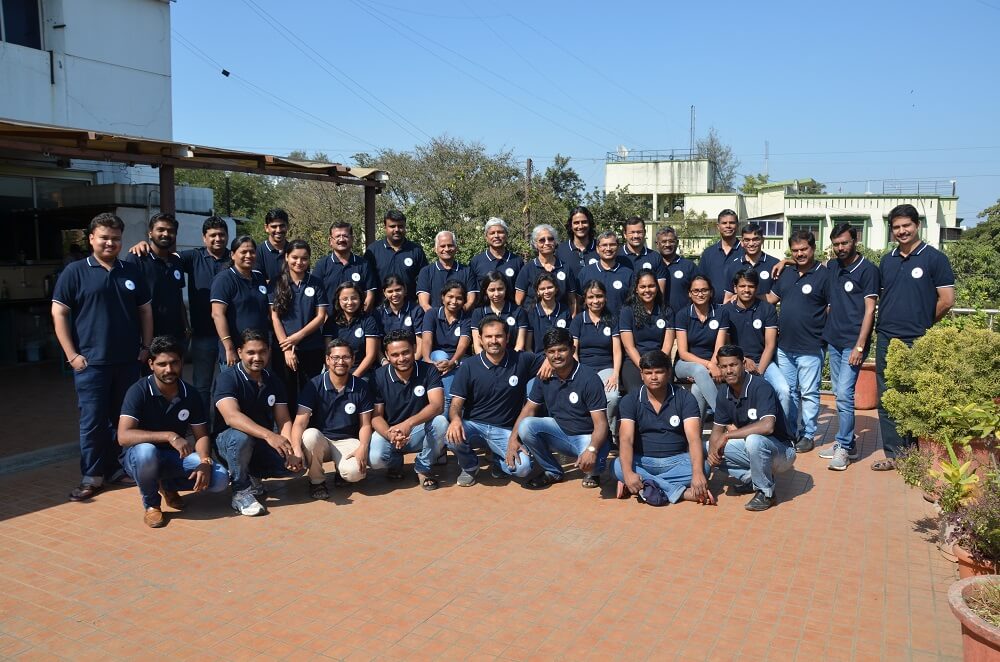
Major Projects
Building Resilience in Agriculture and Allied Sectors in rural Maharashtra
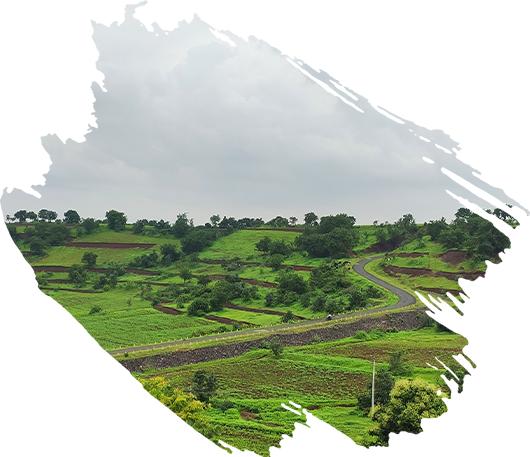
Against the backdrop of increasing manifestations of climate change and depletion of natural resources, W-CReS and WOTR, together with the support of the India Climate Collective (ICC), have launched a project, “Building Resilience in Agriculture and Allied Sectors in rural Maharashtra” which is part of a larger initiative for “Integrating Ecosystem-based Adaptation (EbA) in Development Policies of Maharashtra State”. EbA is a globally evolving concept that seeks to build the resilience of communities to climate change by sustainably restoring ecosystem services and conserving biodiversity.
The overall objective of the project is to provide strategic support to relevant departments of the Government of Maharashtra for building resilience of rural communities. The project has 4 key interventions: (i) Building agricultural resilience through nature-friendly farming practices; (ii) Strengthening agricultural digital advisory systems; (iii) Integrating EbA considerations and practices across developmental policies and programs in rural areas; and (iv) Enhancing water security in the state.
Integrated Water Resources Development and Promotion of EbA in Maharashtra and Telangana – A Practice and Knowledge Embedded Approach
The project in collaboration with Honeywell Hometown Solutions India Foundation (HHSIF) is pioneering a knowledge-centric approach to enhance awareness and mobilise rural communities for EbA measures. The objective is to empower these communities to harness their natural landscapes and ecosystems for sustainable livelihoods. In select villages, this initiative is spearheaded through farmer collectives, including FPOs. The project aims to not only protect the environment but also generate substantial income for the communities involved. Simultaneously, a comprehensive Land Surface Temperature (LST) study is underway which seeks to assess the impact of climbing temperatures on water resources, land, and agricultural practices in particular regions of Maharashtra. Furthermore, this project supports the ECOBARI collaborative, led by WOTR & W-CReS, to upscale EbA across the country.
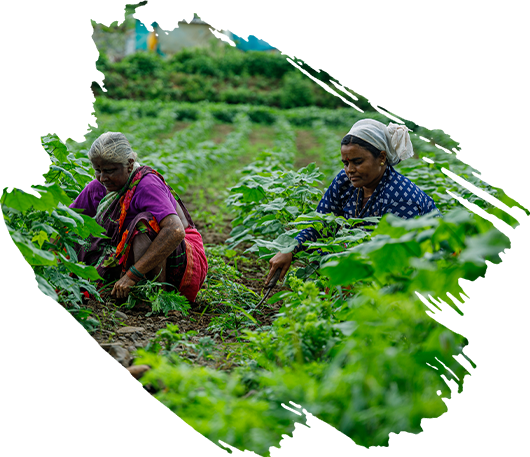
Nature-based Solutions for Sustainable Rural Landscapes and Climate Resilience
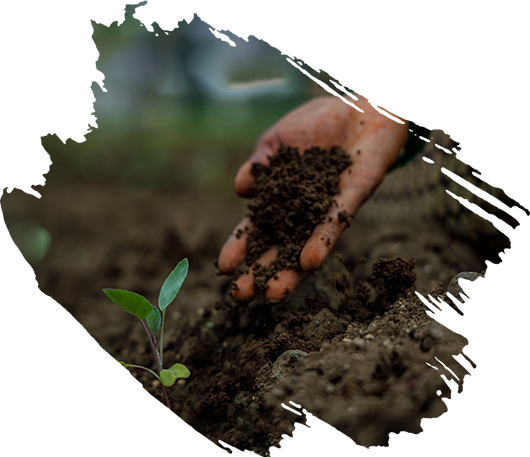
Climate-SDGs Integration Project: Supporting the Implementation of the Paris Agreement and the 2030 Agenda Through Ecosystem-based Adaptation
The project proposes EbA as an approach for governments to meet their global commitments under the Paris Agreement and Agenda 2030. The aim is to document evidence on the effectiveness of EbA measures and develop a roadmap for upscaling EbA in rainfed regions through multi-stakeholder engagement. The project is being jointly implemented with TMG Research, Berlin, Germany, supported by the International Climate Initiative (IKI) by the Federal Ministry for the Environment, Nature Conservation, Building and Nuclear Safety (BMUB), Germany.
Under the project, W-CReS has conducted two state-level consultations, several thematic and expert meetings, training and capacity building workshops, two films and three analytical reports on upscaling EbA in Maharashtra.
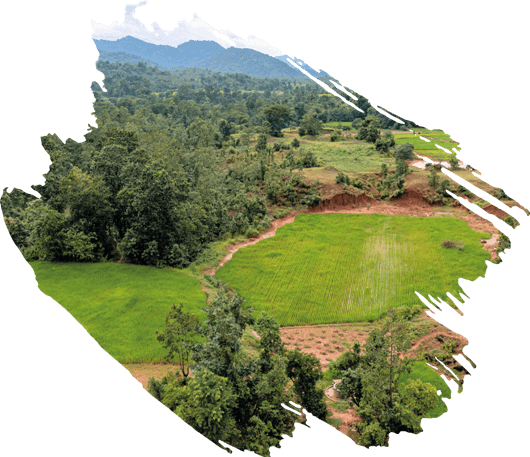
Soil Protection And Rehabilitation For Food
Security In India
With a focus on small farmers (particularly women farmers) the objective of this project is to take measures regarding soil protection, rehabilitation and fertility management. The project, funded by GIZ, aims to study various factors hindering the wide application of sustainable practices and its impact.
The project is implemented over an area of 18,053 ha in 20 villages of three districts in Maharashtra.
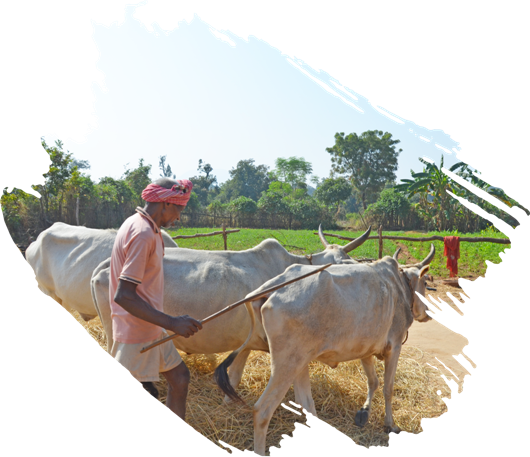
Generating Knowledge To Build Drought Resilience In A Changing Climate
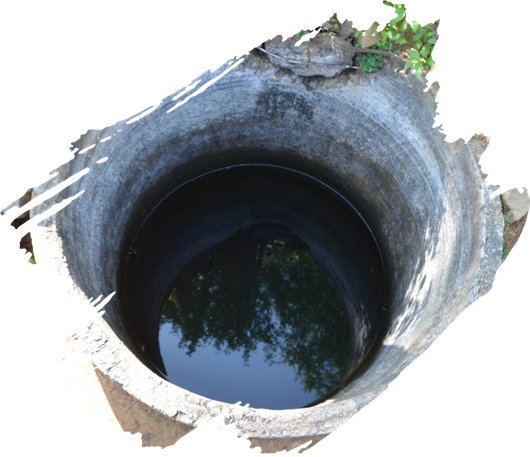
The project aims to build a knowledge pool and devise solutions for drought management through on-ground, participatory and trans-disciplinary research. In partnership with HSBC Software, W-CReS is currently conducting the following three studies.
- Triggers for good groundwater management
- Cost-benefit analysis of climate change adaptation
- Policies and programs for water resource development and management in Maharashtra
Building Resilience in Agriculture and Allied Sectors in rural Maharashtra

Against the backdrop of increasing manifestations of climate change and depletion of natural resources, W-CReS and WOTR, together with the support of the India Climate Collective (ICC), have launched a project, “Building Resilience in Agriculture and Allied Sectors in rural Maharashtra” which is part of a larger initiative for “Integrating Ecosystem-based Adaptation (EbA) in Development Policies of Maharashtra State”. EbA is a globally evolving concept that seeks to build the resilience of communities to climate change by sustainably restoring ecosystem services and conserving biodiversity.
The overall objective of the project is to provide strategic support to relevant departments of the Government of Maharashtra for building resilience of rural communities. The project has 4 key interventions: (i) Building agricultural resilience through nature-friendly farming practices; (ii) Strengthening agricultural digital advisory systems; (iii) Integrating EbA considerations and practices across developmental policies and programs in rural areas; and (iv) Enhancing water security in the state.
Integrated Water Resources Development and Promotion of EbA in Maharashtra and Telangana – A Practice and Knowledge Embedded Approach
The project in collaboration with Honeywell Hometown Solutions India Foundation (HHSIF) is pioneering a knowledge-centric approach to enhance awareness and mobilise rural communities for EbA measures. The objective is to empower these communities to harness their natural landscapes and ecosystems for sustainable livelihoods. In select villages, this initiative is spearheaded through farmer collectives, including FPOs. The project aims to not only protect the environment but also generate substantial income for the communities involved. Simultaneously, a comprehensive Land Surface Temperature (LST) study is underway which seeks to assess the impact of climbing temperatures on water resources, land, and agricultural practices in particular regions of Maharashtra. Furthermore, this project supports the ECOBARI collaborative, led by WOTR & W-CReS, to upscale EbA across the country.

Nature-based Solutions for Sustainable Rural Landscapes and Climate Resilience

Climate-SDGs Integration Project: Supporting the Implementation of the Paris Agreement and the 2030 Agenda Through Ecosystem-based Adaptation
The project proposes EbA as an approach for governments to meet their global commitments under the Paris Agreement and Agenda 2030. The aim is to document evidence on the effectiveness of EbA measures and develop a roadmap for upscaling EbA in rainfed regions through multi-stakeholder engagement. The project is being jointly implemented with TMG Research, Berlin, Germany, supported by the International Climate Initiative (IKI) by the Federal Ministry for the Environment, Nature Conservation, Building and Nuclear Safety (BMUB), Germany.
Under the project, W-CReS has conducted two state-level consultations, several thematic and expert meetings, training and capacity building workshops, two films and three analytical reports on upscaling EbA in Maharashtra.

Soil Protection And Rehabilitation For Food
Security In India
With a focus on small farmers (particularly women farmers) the objective of this project is to take measures regarding soil protection, rehabilitation and fertility management. The project, funded by GIZ, aims to study various factors hindering the wide application of sustainable practices and its impact.
The project is implemented over an area of 18,053 ha in 20 villages of three districts in Maharashtra.

Generating Knowledge To Build Drought Resilience In A Changing Climate

The project aims to build a knowledge pool and devise solutions for drought management through on-ground, participatory and trans-disciplinary research. In partnership with HSBC Software, W-CReS is currently conducting the following three studies.
- Triggers for good groundwater management
- Cost-benefit analysis of climate change adaptation
- Policies and programs for water resource development and management in Maharashtra
Key Research Publications
The study indicates the economic viability of watershed development to mitigate the risks of climate extremes. The study, conducted in four villages of eastern MP, showed encouraging impact of watershed development, especially during the droughts. The results work in favour of ecosystem regeneration and improvement of community’s well-being.
The report shows that EbA can help build systemic resilience in ecosystems and communities. It highlights 6 key messages and makes several recommendations that would be useful for policymakers at the state and central level as well as those in the scientific community and practitioners working in NGOs.
This publication has detailed information about soil health indicators, the importance of soil health cards and the categorization of soil based on nutrient availability.
The use of chemical fertilizers is expensive and one of the main sources of greenhouse gas (GHG) emissions from agriculture. On the other hand, the use of organic manure is always debated for low productivity and profitability while many suggest that it is an effective strategy to improve soil fertility, reduce the production cost and mitigate the GHG emissions from agricultural fields.
India faces an escalating climate crisis. The Global Climate Risk Index 2021 ranks India as the seventh most affected country by extreme weather events in the world (Eckstein et. al., 2021). In 2019 alone, climate-related hazards like heat waves, storms and floods led to an economic loss of around USD 69 billion (approx. Rs 5 lac crore) in purchasing power parity and displaced millions of people in India (Eckstein et. al., 2021).
Rising temperatures are causing distress across the world, and for those most vulnerable, it is a silent killer. Information about indoor air temperature in residential dwellings is of interest for a range of reasons, such as health, thermal comfort and coping practices. However, there have been only few studies that measure indoor heat exposure, and contrast these to outdoor temperatures in rural-urban areas, of which none are in South Asia.
Climate change is accompanied by increasing weather uncertainty. Farmers, especially smallholder farmers, need advance warning of emergent weather conditions at a local level. Mobile telecommunication systems are increasingly cost-effective and an efficient way of delivering weather-based agro-advisories to farmers at a large scale.




